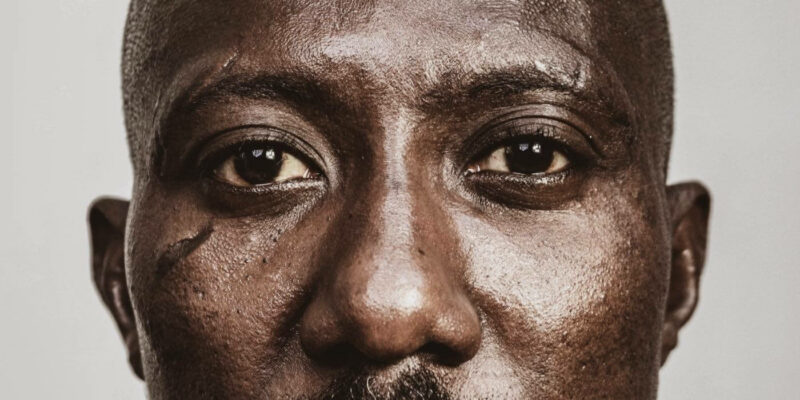Inspired by Scott Young’s recent 7 Rules for Happiness, I thought it would be fun to put together a list of my own rules, but for emotional health rather than happiness.
Here goes…
1. No complaining.
The habit of complaining—out loud to others or in our own self-talk—is one of the nastiest and most unhealthy coping mechanisms there is.
In exchange for a brief and superficial ego boost, chronic complaining nearly always leads to a constellation of unhelpful secondary habits from gossiping and venting to rumination and self-pity, which, in addition to making us pretty unpleasant to be around, tend to erode our self-esteem and depress our mood into bouts of irritability, shame, resentment, and apathy—which we then go on to complain about.
In an age enamored with setting boundaries on the “toxic” people in our lives, we seem remarkably unwilling to set boundaries on our own unsavory habits. Complaining is one I’m working especially hard to avoid because of how many destructive downstream effects it has.
2. Never worry in your head.
It’s inevitable that worries will pop into mind. What’s not inevitable is that we choose to elaborate on them by worrying.
Being aware of this distinction—and fairly ruthless with ourselves about being compassionate with the former and taking responsibility for the latter—is the single most important way to avoid excess anxiety and all the stress, overwhelm, insomnia, burnout, and chronic fatigue that comes with it. So the rule I have for myself is that I’m allowed to worry, but only on paper, never in my head.
If a worry pops into mind, that’s a decision point: I can either accept it, tolerate it, and refocus my attention onto something else; or I can pull out a notepad and start writing down my worries, one of the main benefits of which is that I can’t write nearly as fast as I can think—and because the intensity of our anxiety is proportional to the amount of worrying we do, if I constrain my speed of worrying to the speed of writing, I end up having a lot less anxiety.
During times when I’m especially vulnerable to worrying and anxiety, I make time to schedule my worry.
3. Validate the emotion, control your attention.
Even as a psychologist, it’s surprisingly easy to fall into the trap of assuming that because an emotion feels bad, it is bad—and therefore I need to do something about it.
Of course, doing something about a difficult emotion like anger, guilt, or anxiety usually means trying to get rid of it or avoid it—both of which only make things worse long term. The solution I still need constant reminding of is to accept the emotion and be willing to have it (no matter how unpleasant) and then to get on with life anyway.
So this little rule to validate the emotion, control the attention helps me to A) briefly acknowledge the emotion and remind myself that it’s okay to feel whatever I’m feeling, then B) take control over my attention and choose consciously what to focus on rather than impulsively reacting to my emotions.
Validation and attentional control are arguably the two most important skills in all of emotional health. But like most skills, they take practice to develop and maintain. Emotional fitness > emotional intelligence.
4. “It’s not who I am underneath, but what I do that defines me.”
Yes, it’s a quote from Batman. And… it’s also an immensely important and helpful insight into the nature of identity, self-esteem, and emotional health.
It’s currently popular among both consumers and producers of mental health wisdom that who we are (including our emotional struggles) is primarily a function of factors over which we have little to no control—from our genetics and brain chemistry to our parent’s lack of sensitivity and affection when we were young. Naturally, this feels validating and relieving in the moment to externalize our struggles onto things over which we can’t control—and as a result, can’t be held responsible for. And while of course it is true that external things do influence us, it’s a treacherous mistake to convince ourselves that that’s the whole story.
I’ve found that the most productive way through most of my own emotional struggles is to focus almost exclusively on my own behaviors (physical and mental) as determinants of my wellbeing—in large part because they’re the only things I have direct control over.
We are not defined by our problems; but we are defined by how we respond to them.
5. Produce more than you consume.
Being consistently productive is one of the best ways I’ve learned to bolster my emotional health. And while there’s obviously an unhealthy version of productivity associated with burnout, overwork, etc., I think all the hand wringing about toxic productivity is mostly a way to avoid the hard work of figuring out what healthy productivity actually means and looks like in our own lives.
For me, healthy productivity means working hard to make things that are both meaningful and enjoyable for me to build and helpful and interesting to others. At this point in my life, that often takes the form of writing articles, recording podcast interviews with experts I admire or am intrigued by, and more recently—terrifying as it is—getting behind the camera and making videos.
Of course, some high-quality consumption is important too. I wouldn’t know whom to interview on my podcast, for example, if I wasn’t reading other people’s books or articles. But because our culture is so geared toward consumption, I find it helpful to push back strongly—almost unthinkingly—in the other direction.
6. Solve the real problem.
Many of my problems in life have come down to letting myself be hoodwinked by fake problems…
A couple embarrassing examples:
- Adolescent Nick: I’m scared of talking to cute girls. Maybe if I wear cooler clothes they’ll just come up to me and start talking? Wrong. Putting time, energy, and money into rehabbing my wardrobe was a fake problem that led me to procrastinate on the real problem: Learning to tolerate my fears and insecurities by talking to cute girls regardless of how I happened to feel.
- Mid-20s Nick: I’m overwhelmed and intimidated by the seeming complexity of investing in the stock market, so I’ll just put my relatively meager amounts of money into a savings account. Wrong. Putting money into a savings account was an avoidance mechanism that cost me money, exacerbated my financial anxiety, and prevented me from solving the real problem: Being ignorant of how investing actually works and doing the work to overcome my fear of feeling dumb by learning something new.
The human mind has a spectacular capacity to create fake problems as a way to avoid the emotional discomfort of tackling real problems.
So much of emotional health comes down to cultivating a sensitivity to fake problems, ignoring them, and then being willing to confront the real ones assertively.
7. I am responsible for what I want.
This is the most tenuous of the seven because I’m still testing it. But the basic idea is something I’ve been chewing on ever since reading Luke Burgis’s book Wanting, which is about Rene Girard’s theory of mimetic desire, the central premise of which is that most of our desires—and what we end up wanting and pursuing as a result—are very often the result of seeing and imitating what other people want.
I find this intriguing because, while we tend to think of our desires as relatively innate and fixed—I didn’t choose to like vanilla ice-cream more than chocolate, or iPhones vs Androids, it’s just the way I’m wired!—the reality may be that we have far more control over our desires than we think. And along with that control, comes responsibility. Which leads to this final rule: I am responsible for what I want.
The hypothesis I’m playing with is that operating as if this is true will make me healthier and happier than the alternative.
A couple of examples:
- On exercise… Will I be happier and healthier in the long run if I resign myself to the feeling that I just don’t enjoy lifting weights? Or, is it possible for me to cultivate a genuine desire for lifting weights and actually want to do it?
- On creative work… Will I be happier and healthier in the long run if I resign myself to the feeling that I’m a writer, not a video guy? Or, is it possible that—however scary and intimidating—I could cultivate an authentic desire for creating videos instead of just writing?
I’ll end with an uncomfortable quote from Luke’s book about what’s required to change how we desire:
One thing that every spiritual tradition is clear about is that changing how we desire, at least in a positive way, requires suffering. Nobody wants to let go of thin desires.
Final Thoughts
These typically go at the top on an article as an introduction or disclaimer, but avoiding long-winded intros is one of my personal writing rules, so I’ve buried them here at the end:
- These are my rules. I try to live by them because they’re helpful to me. And while I imagine many of them will generalize fairly well to others, the utility in reading about my rules is less in copy and pasting them into your life and more in reflecting on what rules might benefit your emotional health.
- Speaking of the term rules, let’s talk about that for a second… Of course these aren’t rules in the Ten Commandments sense of the term. I haven’t had them framed and hung on my wall for the last 20 years or anything. In fact, I just wrote them down today. Instead, these rules are an attempt to formalize or make explicit a lot of implicit principles and heuristics I have internalized over the years—especially over the last 10 years or so as I’ve worked as a psychologist.
- I’ve focused on rules that are primarily psychological in nature. But of course, factors like sleep, exercise, diet, and relationships matter immensely for emotional health. In fact, I’d bet the effectiveness of the rules I listed above are largely dependent on first doing at least reasonably well in these categories of physical and social health.
- As I was writing these, the thought crossed my mind: How are these different from and similar to my 13 spiky points of view on emotional health? These rules are fundamentally practical, even ethical in nature; they exist to help me act rightly. My 13 spiky points of view, on the other hand, are basically descriptive in nature and exist to clarify what I believe to be true about emotional health. I think these rules flow from the spiky points of view in important ways, but they’re distinct in terms of their function as principles or heuristics for action.
- Why 7? I originally planned on 10, but I got tired of writing after 7. Gotta leave your reader hooked for a sequel, right?
- If there’s a through-line to all the rules, I think it’s agency. To a large extent, emotional health comes down to taking responsibility for ourselves and our lives—a large part of which means being exceptionally clear about what we do and don’t have control over. There are massive opportunity costs in trying to control the uncontrollable—many of which are emotional and psychological in nature.
What are your rules for emotional health?
Thoughts? Critiques? Additions? Feel free to leave a comment below ↓





27 Comments
Add YoursGod, grant me the serenity to accept the things I cannot change. The courage to change the things I can. And the wisdom to know the difference.
I had this quote in my first draft. Spot on!
Great words, full of truth, and gives us something truly valuable to strive for: the difference!
I enjoy your writing Nick. Nice work And thank you.
Today – I particularly liked “Produce , more than you consume “ on balance that makes a lot of sense. It’s also modest and moderate, doesn’t ask too much of us , and is a way to living a life which places the common good ahead of our own good.
Thanks Glenn!
Thank you so much for this article. It is extremely helpful. I will keep it to reference. I am a chronic worrier, so your suggestions on writing them down instead of letting them spin in my head is such a useful tool
Help me accept the things I cannot change and participate in the things I can!
Nice twist, Jane 🙂
Thank you for this, Jane! Im a classic overthinker AND stoic which really twists my brain in knots sometimes between thinking vs acting. Aside from the thorough and thoughtful provoking article, Nick, this was exactly what I needed to hear.
Thanks, Nick. I love your outlook! Do you have any particular words of wisdom for artists and other creatives who love their own work but get mixed with the need for others to like their work too (and sometimes they don’t)
Hi Nick, I’m not usually one to read “list articles” but I did find this one very helpful. It is about choice and agency.
I do also believe that environment and parents can have a significant (negative or positive) influence on us. Part of our “jobs” in becoming adults is to identify and overcome those negative influences (and realize the gift of the positive influences, which not all of us had, and not use it as a way to “belittle other people” for not being “together”).
The thing–or people–I’m concerned about the most are the ones who may have been so “damaged” by their upbringing that they simply CANNOT see the forest for the trees. It is heartbreaking to watch them wallow in their pain and propogate that to people in their lives.
Regarding rule 7, the Dalai Lama touches on this concept in his book The Art of Happiness, chapter 3: Training the Mind for Happiness. Personally, when trying to teach myself to like an otherwise unenjoyable task, I focus on some aspect of it that IS enjoyable… not just the outcome, but some part of the process. I may not like lifting weights, but I do like trying to hold that weight perfectly level and have perfect form while doing it, so I focus on that aspect and actually enjoy that challenge, like a game.
Consider: Spiritual language, and especially western models can over simplify the mechanisms of desire, resigning the issue to a black and white issue of will power, interjecting an afflictive sense of shame to those who ‘fall’ short. Suffering may be, but does not have to be a part of consciously effecting our desires.
Consider aversion and attraction. Even basic organisms experience this as a mode of survival. ‘Based on my current biological needs, my current environment, what I witness others doing and what I’ve experienced in the past – I predict that this will be either beneficial or afflictive.’ If emotions, moods and desire are elaborations on basic affect, and as such are all quite natural, then applying your rule #3 to desires may be beneficial. – Acknowledging, yet examining and exerting influence.
If our desires are built on prediction ( which may include mimicry) perhaps ‘taking responsibility’ for what we want hinges on adding information to have a more comprehensive understanding of potential outcomes. This amounts to exploration, learning, gaining insight and new experience rather than painfully stripping away ‘thin’ desires’.
Though learning and changing patterns of prediction and behavior may include some discomfort, I’m not sure it’s beneficial to set that in stone as a requirement. That ‘information’ or bias is limited and may lead to a false or limited prediction, ie ‘this is going to hurt so why bother’ – or ‘if I fail to change that means I’m weak’ and so on.
– All my best. And thanks for all your hard work. Keep up the good work!
THIS REALIZATION CHANGES EVERYTHING: Or, is it possible for me to cultivate a genuine desire for (lifting weights)___________ and actually want to do it?
I recently accepted a 100DayProject challenge to do some form of art for a few minutes every day. I chose watercolors simply because they were an easy medium and I had both the equipment from a class 25 years ago & zero abilities. I thought I could tolerate a few minutes everyday. One of the requirements for the project is to post images of your art/project. That was fun and funny for I had zero expectations of doing anything worthwhile.
However, as I learned more about my in-abilities, looked to others for a tiny bit of guidance (get better paper, not so much water, paint light to dark) I soon saw my changing abilities
Then I found myself eager to be at the table with paints in the morning – not to get this task out of the way, but to see how I & my abilities had changed.
CHUCKLING – Now I feel deprived if I don’t get an “art fix” in the morning! I’m on Day 72 of this 100 day process and it’s been such fun to laugh as I learn.
I also think having no bold expectations on the outcomes has been a real important lesson, too. I’ll never be a famous watercolor artist, but I sure am having fun and that’s the best feeling ever.
CONCLUSION: It was possible to cultivate a genuine desire for a daily playtime with watercolor painting and actually want to do it.
Thanks again for your insights and sharing!
This was a great story! I have talent, I will admit it is not the amount that I always felt I needed, but now I am jealous yet falling in love with the process more than the final product, and realizing that’s what counts: the doing!
A former colleague of mine asked if I knew that there was a short version of the Serenity Prayer. I said I didn’t and what is it? He said “F*** ’em.”
There is something deliciously profound about that.
Enjoyed Dan Deitz after reading the article and these replies I was wilting, the humour broke that completely, thank you, as this is really important we can take ourselves and others much too seriously, F*****em is not easy to master.
It’s affective real about emotion distress to let everyone whic read it ride toward his target without live issue and not spend his time and many lose his mind if he is not control his mind
Thank you very much for your advise
Love your stuff Nick. I think it’s also very helpful to recognise we are all
On a journey ,’ life is a journey , not a destination ,’ so often guilt for not getting it right Follows us , so validation of our journey is imperative . Our brain is such a powerful tool , it can be controlled and not control us. Love that we in fact do have the authority over it if we choose to. Thanks Nick.
Dang! This was well-loaded with pearls of wisdom. Thanks, Nick.
Thank you for this article, Nick! I really appreciated these insights. Some I’ve heard you talk about before, but others were new reminders for me. Also, I appreciated you including the link to Scott Young’s article at the top. I found that one interesting and helpful as well.
This was a very interesting article with really great points and examples. It gives the readers many things to think about.
At 72, I can look back on my life, and I realize I have always wanted things different than those around me. At times I pretended, to keep friends and family from abandoning me. Of the 14 kids in my family, I moved the furthest away from home, but have still kept close to my siblings. I love them dearly, but have to be free to be me. As a retiree, I am forever being encouraged to “do” something “more” with my life. I am perfectly content to relax, and do what I love, photography, gardening, jigsaw puzzles, coloring…! I don’t have a whole lot of money, but, I have enough. I prioritize my spending so I can continue to do what feeds my soul.
Great article and I love the advice to address worries only on paper!
I really needed to be reminded about complaining. I got so caught up in the frustration of the symptoms of an undiagnosed illness that I found myself doing nothing but complain – for years. It is SO not productive. It solves nothing but serves to alienate and/or annoy everyone around you. Nice writing. Thanks for the reminder. I needed it.
I myself is Master’s in psychology. Your articles are the best. I read most of them with enthusiasm for my further learning. Thanks Nick.
These rules for emotional health offer practical insights into fostering well-being and agency in navigating life’s complexities.